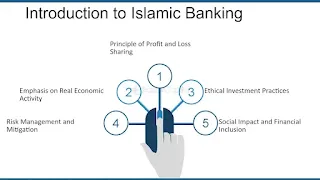APP Kabar Antero
Test
Archive
Iklan Atas Artikel
Postingan Populer
Corporate Financial Management in Facing Tax Changes Tax policy changes are one of the challenges that companies must face in managing their finances. Evolving tax regulations can affect cash flow, profits, and overall business strategy. Therefore, corporate financial management must be adaptive and proactive in dealing with tax changes in order to remain competitive and comply with applicable regulations. Impact of Tax Changes on Corporate Finances Tax changes can have an impact on various aspects of a company's finances, including: • Changing Tax Burden If tax rates increase, companies need to prepare a strategy to reduce the impact on net income. Conversely, if tax rates decrease, companies can take advantage of this opportunity to increase business expansion. • Cash Flow and Liquidity Higher taxes can reduce a company's liquidity, so a more effective cash management strategy is needed to ensure smooth operations. • Changes in Investment Strategy A stricter tax policy can ca...
The Influence of Changes in Accounting Regulations on Financial Reports
Published by
Vesperin
On
The Influence of Changes in Accounting Regulations on Financial Reports Changes in accounting regulations can significantly influence financial reports, as they alter how financial transactions are recorded, reported, and analyzed. Accounting regulations ensure transparency, consistency, and comparability of financial statements, which are critical for investors, regulators, and other stakeholders. When accounting standards or regulations change, it can affect how a company's financial position, performance, and cash flows are presented. Below is an analysis of the key ways in which changes in accounting regulations impact financial reports: 1. Impact on Financial Statement Preparation Revised Reporting Standards : Changes in accounting regulations typically introduce new or modified reporting standards that dictate how financial transactions are recognized and measured. For example, changes to revenue recognition rules under IFRS 15 or ASC 606 (Revenue from Contracts with Cus...
Why Car Insurance Matters: Protection You Shouldn't Ignore 2025
Published by
Vesperin
On
Why Car Insurance Matters: Protection You Shouldn't Ignore As car owners, we certainly want our vehicles to remain in prime condition and safe when used. However, even though we are careful in driving, accidents, damage, or vehicle theft can still happen anytime and anywhere. This is why car insurance is very important and should not be ignored. Here are some reasons why car insurance is so important to you. 1. Financial Protection Against Losses Without insurance, the cost of repairing a damaged car or replacing a lost vehicle can be very high, depending on the type of damage or loss. For example, if your car is involved in a serious accident and requires major repairs, without insurance, you will have to cover the entire cost out of your own pocket. Car insurance provides financial protection by covering most or all of the cost of repairing or replacing your vehicle, so you don't have to worry about the burden of large costs. 2. Protection from Unexpected Accidents Acciden...







